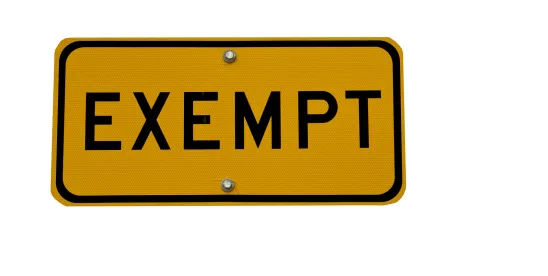The “healthcare exemption” to the TCPA’s consent requirements is one of the more misunderstood parts of the TCPA. And a recent case in North Carolina just gave a lesson to an ophthalmology group to help them see the requirements of the exemption a little more clearly.
Before discussing the case, let’s look at the healthcare exemption. The healthcare exemption exempts certain calls from the consent requirements found in 47 C.F.R. § 64.1200(a)(1)(iii) which require prior express consent when using an ATDS or an artificial or prerecorded voice to dial cell phones.
The healthcare exemption only applies in certain circumstances. First, the calls must be made by, or on behalf of, healthcare providers. Second, there are several conditions that the calls being made by healthcare providers are required to meet, including but not limited to:
- Calls or texts must be sent only to the wireless telephone number provided by the patient
- Calls or texts must be limited to the “following purposes: appointment and exam confirmations and reminders, wellness checkups, hospital pre-registration instructions, pre-operative instructions, lab results, post-discharge follow-up intended to prevent readmission, prescription notifications, and home healthcare instructions”
- Calls or texts must not include any telemarketing, solicitation, or advertising
- Calls or texts are limited to only one message (either by call or text message) per day and no more than three messages combined per week.
- The healthcare provider must honor opt-out immediately.
In Hicks v. Raleigh Ophthalmology, P.C., 2025 WL 1047708 (E.D. N.C. Apr. 8, 2025), Deanna Hicks visited her optometrist about some vision issues. Her optometrist referred her to Raliegh Ophthalmoghy (“Raliegh”). Hicks had never provided Raliegh with any paperwork and had no prior patient relationship with Raliegh.
However, according to the complaint, Raliegh called Hicks using a pre-recorded call to her cell phone which stated the call was from Raliegh. Hicks used the automated menu to speak with an employee and told the employee she was not interested in booking an appointment. She received a text message from Raliegh which also requested her to book an appointment, and she responded “STOP” to the text message.
This did not end the communication carousel that Hicks found herself on with Raliegh. She received several more calls and she talked to live employees and asked to be removed from their list. Even after speaking to a manager, the calls continued. Unsurprisingly, Hicks sued, and the remaining count addressed in the opinion is that Raliegh called Hicks without her consent.
Raliegh raised three arguments in their motion to dismiss. The first is that they had the consent of Hicks because she gave her number to the optometrist and that was consent for Raliegh to call her. Hicks’s complaint states that she did not provide consent to Raliegh or provide them with paperwork. The Court stated that to infer there was consent for her optometrist to call Hicks, it is not reasonable to extend that to Raliegh as a third-party healthcare provider with no preexisting relationship with Hicks. Furthermore, consent is a fact issue and not suitable for a motion to dismiss.
Raliegh’s second argument is related to the healthcare exemption. The Court stated the healthcare exemption is limited to calls about a certain number of topics, and Raliegh “has not identified any authority to support that the TCPA authorizes an entity to make a prerecorded call to an individual to book an appointment prior to establishing a treatment relationship with that individual, and the court is unable to locate any.”
[SIDE NOTE: The Court did not address this, but I would also call out that these calls could be considered telemarketing under the TCPA because they were initiated for the purpose of encouraging the purchase of Raliegh’s services. Therefore, they would fail under the healthcare exemption due to that as well.]
The Court stated that even if the first call qualified under the exemption, the exemption requires the healthcare provider to “honor opt-out requests immediately”. Clearly, Raliegh failed to do so. Therefore, the second argument was insufficient for dismissal.
The third argument was related to the proposed class definition, but the Court said that argument is better left for opposing class certification. And therefore, Hicks survives the motion for dismissal.
This case illustrates the power of the healthcare exemption. But, much like Peter Parker, with great power comes great responsibility. To rely on the healthcare exemption, a healthcare provider, such as Raliegh, must not turn a blind eye to the requirements of the exemption. Because if the requirements are not met completely, the future reliance on the exemption for TCPA purposes could get very hazy.




 />i
/>i

